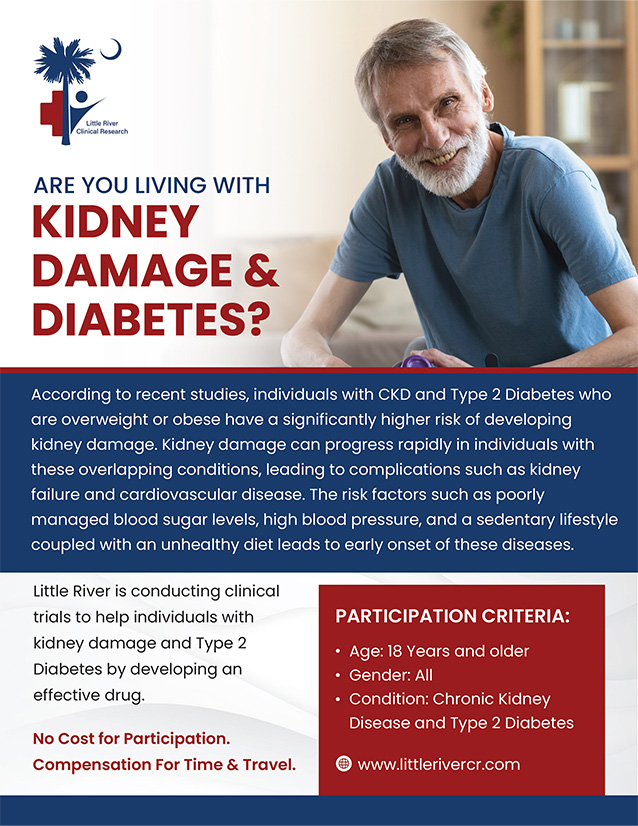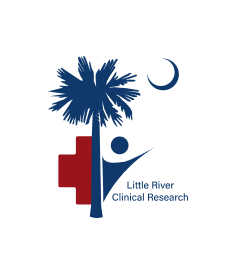Excess body weight and obesity are significant risk factors for developing both CKD and type 2 diabetes. Clinical trials for kidney disease and clinical trials for type 2 diabetes are crucial for developing effective treatments and intervention to manage these conditions and improve patient outcomes.

Study
Enroll in Clinical Trial for Type 2 Diabetes & CCDK
(Adult-Onset Diabetes & Kidney Complications)
- Age: 18 Years and older
- Gender: All
- Condition: Chronic Kidney Disease and Type 2 Diabetes
- Status: Active
Kidney Disease and Type 2 Diabetes clinical trials in Little River in South Carolina is developing a novel investigational drug to manage and treat these conditions together.

About Kidney Disease and Type 2 Diabetes
Prolonged high blood sugar levels in diabetes can harm the blood vessels and nephrons in the kidneys, reducing their efficiency. Additionally, individuals with diabetes often experience high blood pressure, further contributing to kidney damage.
Contact Us
Submit A Request
Still have questions?
Frequently Asked
Questions
How does diabetes contribute to CKD development?
Diabetes contributes to CKD development primarily through prolonged high blood sugar levels, which can damage the small blood vessels and filtering units in the kidneys over time. This damage impairs kidney function and can eventually lead to chronic kidney disease.
How can I manage diabetes to reduce the risk of developing CKD?
Managing diabetes involves maintaining healthy blood sugar levels through diet, exercise, medication, and regular monitoring to lower the risk of CKD.
Are there specific clinical trials or treatments available for individuals with both diabetes and CKD?
Yes, there are Clinical Trials for Type 2 Diabetes available at Little River, some studies specifically target individuals with both diabetes and CKD to improve management and outcomes.
What happens during Kidney Disease Clinical Trials in Little River South Carolina?
Participants receive investigational treatments or placebos, undergo regular health assessments, and provide feedback to researchers regarding their health.
